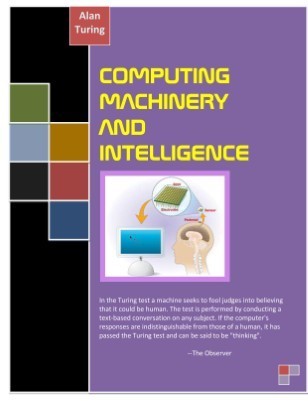What do you think?
Rate this book


24 pages, Unbound
First published January 1, 1950
I believe that in about fifty years' time it will be possible, to programme computers, with a storage capacity of about 10^9, to make them play the imitation game so well that an average interrogator will not have more than 70 per cent chance of making the right identification after five minutes of questioning.
An important feature of a learning machine is that its teacher will often be very largely ignorant of quite what is going on inside, although he may still be able to some extent to predict his pupil's behavior.
Consider first the more accurate form of the question. I believe that in about fifty years' time it will be possible, to programme computers, with a storage capacity of about 10^9 [bits], to make them play the imitation game so well that an average interrogator will not have more than 70 per cent chance of making the right identification after five minutes of questioning. The original question, "Can machines think?" I believe to be too meaningless to deserve discussion.
Nevertheless I believe that at the end of the century the use of words, and general educated opinion, will have altered so much that one will be able to speak of machines thinking without expecting to be contradicted. I believe further that no useful purpose is served by concealing these beliefs. The popular view that scientists proceed inexorably from well-established fact to well-established fact, never being influenced by any improved conjecture, is quite mistaken. Provided it is made clear
which are proved facts and which are conjectures, no harm can result.